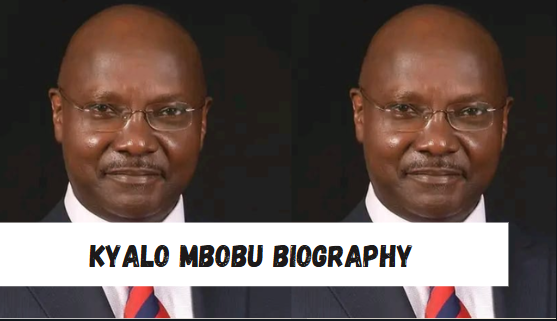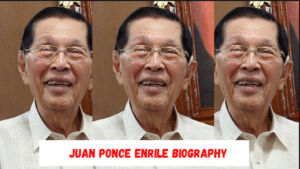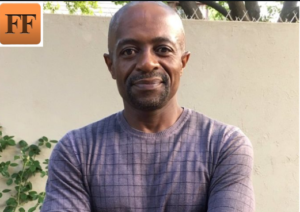
Mathew Kyalo Mbobu was one of Kenya’s respected legal minds — an advocate, academic, teacher and governance practitioner whose work touched courts, university classrooms and public institutions. Known for a steady, methodical approach to law and public service, Mbobu built a reputation over nearly three decades for careful reasoning and disciplined scholarship. His passing in September 2025 shocked the legal fraternity and many Kenyans who followed his work
Kyalo Mbobu Biography
| Field | Details |
|---|---|
| Full name | Mathew Kyalo Mbobu |
| Born | 16 June 1980 (Nairobi, Kenya) |
| Age (at passing) | 45 (2025) |
| Profession | Advocate, academic, governance leader, publisher |
| Notable roles | Chair, Political Parties Dispute Tribunal (PPDT); senior partner at private law firm |
| Net worth (estimated) | US$10,000 (estimate) |
| Wife | Name not publicly disclosed |
| Tribe | Not publicly disclosed |
Early life and formation
Born on 16 June 1980 in Nairobi, Mbobu displayed an early affinity for books and quiet study. Friends and colleagues often described him as patient, methodical and modest — qualities that shaped both his legal practice and teaching style. He pursued legal studies and later moved between litigation, academia and public governance roles, a path that turned him into a familiar face across Kenya’s legal circles.
Career — courtroom, classroom and governance
Over an almost 30-year career, Kyalo Mbobu served in several capacities: advocate in private practice, lecturer and an adjudicator in public dispute resolution. In private practice he was a senior partner at a firm that handled commercial litigation, arbitration and corporate matters. In parallel, he lectured and published, influencing a generation of students and younger lawyers with a steady commitment to rigorous legal analysis.
Chair of the Political Parties Dispute Tribunal (PPDT)
One of Mbobu’s most visible public service roles was his tenure as chair of the Political Parties Dispute Tribunal (PPDT). The PPDT — established under Kenya’s Political Parties Act — adjudicates intra-party disputes and nomination complaints, and Mbobu’s leadership during and after election periods earned him respect for applying legal discipline to often heated political conflicts. His handling of sensitive nomination disputes and internal party wrangles was widely reported as a steadying influence on the tribunal’s credibility
The tragic attack and passing
On Tuesday, 9 September 2025, Mathew Kyalo Mbobu was attacked while driving in the Karen area along Magadi Road; reports say gunmen on a motorcycle trailed his vehicle and opened fire. He was critically wounded and later passed away. The killing stunned Kenya’s legal and academic communities and triggered an immediate police investigation.
Investigation and reaction
Following the attack, the Directorate of Criminal Investigations (DCI) and other security agencies launched probes, tracing the last known movements and piecing together witness accounts. Colleagues, students and public figures issued statements mourning his loss and praising his contributions to legal education and governance. Media outlets and bar associations called for a swift investigation and protection for members of the legal profession.
Personal life and net worth
Mbobu kept much of his private life away from the public eye. Reports note that his wife’s name has not been publicly disclosed, and few personal details have been offered beyond his close-circle relationships and professional biography. Public reporting and available profiles have placed an estimated net worth at roughly US$10,000 — an estimate that reflects publicly accessible information and should be read as such rather than a definitive valuation. His life was more clearly defined by service than by ostentatious wealth. (Net worth figure provided as estimate.)
Legacy and impact
Kyalo Mbobu’s legacy rests on three pillars: his rigorous legal mind, his role in strengthening dispute-resolution mechanisms (notably the PPDT), and his influence as an educator. Former students recall his patience and clarity as a teacher; peers remember a professional who preferred reasoned argument and steady stewardship over headline-seeking. His passing represents a loss to Kenyan law, governance practice and legal education.
FAQs
Q: Who was Kyalo Mbobu?
A: Mathew Kyalo Mbobu was a Kenyan advocate, academic and governance leader who chaired the Political Parties Dispute Tribunal (PPDT) and practiced as a senior lawyer in Nairobi
Q: When and where was he born?
A: He was born on 16 June 1980 in Nairobi, Kenya. (Public profiles list Nairobi as his birthplace.)
Q: How old was Kyalo Mbobu when he passed away?
A: He was 45 years old at the time of his passing in September 2025.
Q: How did he pass away?
A: He was shot by assailants while driving in the Karen area of Nairobi on 9 September 2025 and later passed away. Security agencies launched an investigation into the attack.
Q: What was his role at the PPDT?
A: Mbobu served as chair of the Political Parties Dispute Tribunal, adjudicating intra-party and nomination disputes. His leadership was credited with reinforcing the tribunal’s credibility during tense election periods.
Q: What is his net worth?
A: Public reporting and available profiles estimate his net worth at around US$10,000. This is an estimate and not an audited figure.
Q: What tribe was he from?
A: Tribe or ethnic affiliation is not publicly disclosed in major reports and profiles; therefore it’s not confirmed in public sources.
Q: Was his wife’s name made public?
A: No — his spouse’s name has not been publicly disclosed in the major reports available at the time of writing.
Conclusion
Mathew Kyalo Mbobu’s life was one of steady professional service: a lawyer who taught, a teacher who practiced, and a public servant who helped carry the heavy work of dispute resolution in a lively democracy. His quiet dedication and measured voice will be missed in court halls, lecture rooms and public institutions. As investigations proceed, his peers and students will remember him for the clarity of his legal thought, his commitment to fairness and the integrity he brought to governance wor





